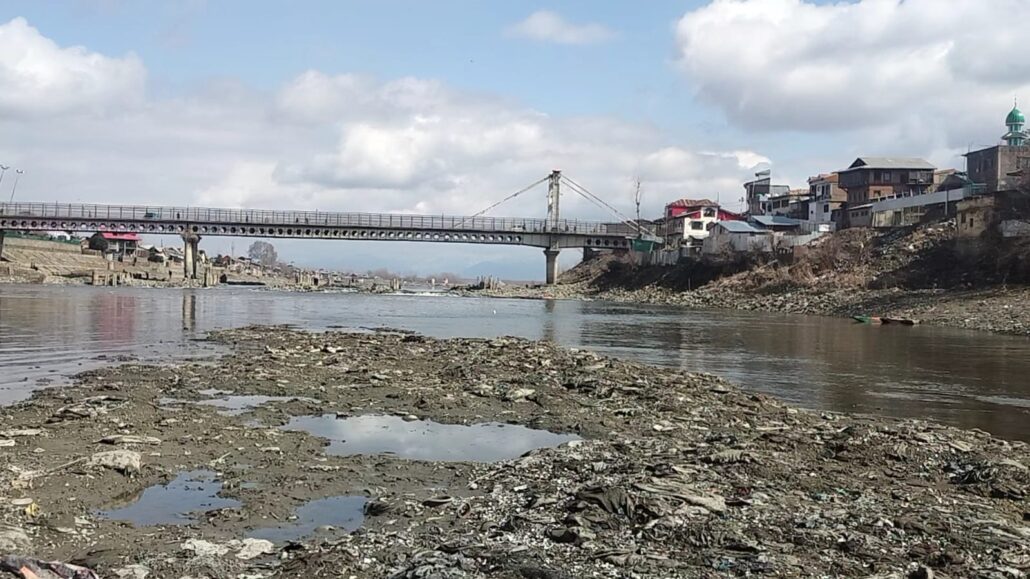
Shabir Khan
“Wular has dried up completely. I have never seen our natural resources in such a devastating state in my whole life,” says 61-year-old Noor Mohammad Khan, standing at the edge of what was once a thriving lake.
For the first time in his life, he has witnessed the drying of the Jhelum, Kashmir’s lifeline, a river that has shaped the history, economy, and culture of the region for centuries.
Its depletion has triggered a chain reaction, drastically reducing water levels in Wular Lake, South Asia’s largest freshwater body.
The Jhelum has always been more than just a river; it is intertwined with Kashmir’s identity. It has survived invasions, floods, and modernization, but the crisis it faces today is unprecedented.
“Unchecked sand mining, excessive extraction, and a severe rainfall deficit have contributed to its decline, leaving Wular and other connected water bodies in peril,” locals told The Kashmiriyat.
The consequences are dire. “It is not just the fish that will be impacted. Our crops, paddy, fruits, everything will be destroyed. The means of survival for most people will be completely altered. Fishermen will be left jobless, and water chestnut harvesters will suffer immensely,” Noor Mohammad explained.
Wular has sustained generations of families, especially those engaged in water chestnut harvesting, a profession that relies on the lake’s seasonal rhythms.
Locally known as Nilasgaer and Kamgaer, these chestnuts are harvested twice a year. With decreasing water levels, the yield is expected to shrink, endangering the livelihoods of hundreds.
Beyond livelihoods, the crisis poses a severe ecological threat. Jhelum and Wular have long acted as natural flood absorbers, preventing disasters in the valley. Their depletion not only signals an economic collapse but also increases the risk of extreme weather events.
Scientists warn that the continuous destruction of water bodies could lead to a permanent shift in Kashmir’s climate.
The Valley, known for its abundant freshwater reserves, is already facing prolonged dry spells.
The Meteorological Department has issued warnings about an impending drought, heightening fears of water scarcity in the coming years.
Noor Mohammad, like many others, believes that government inaction has worsened the situation.
“If the government acts justly, Jhelum and Wular will have their water again. There needs to be accountability. We appeal to the authorities to build embankments and put an end to uncontrolled mining before it is too late.”
Kashmir has witnessed water crises before, but never at this scale, said Noor Mohammed.




